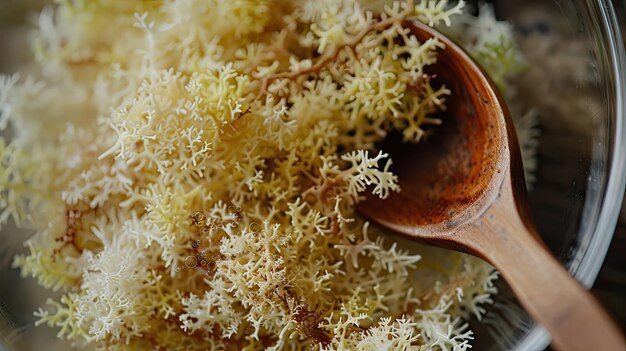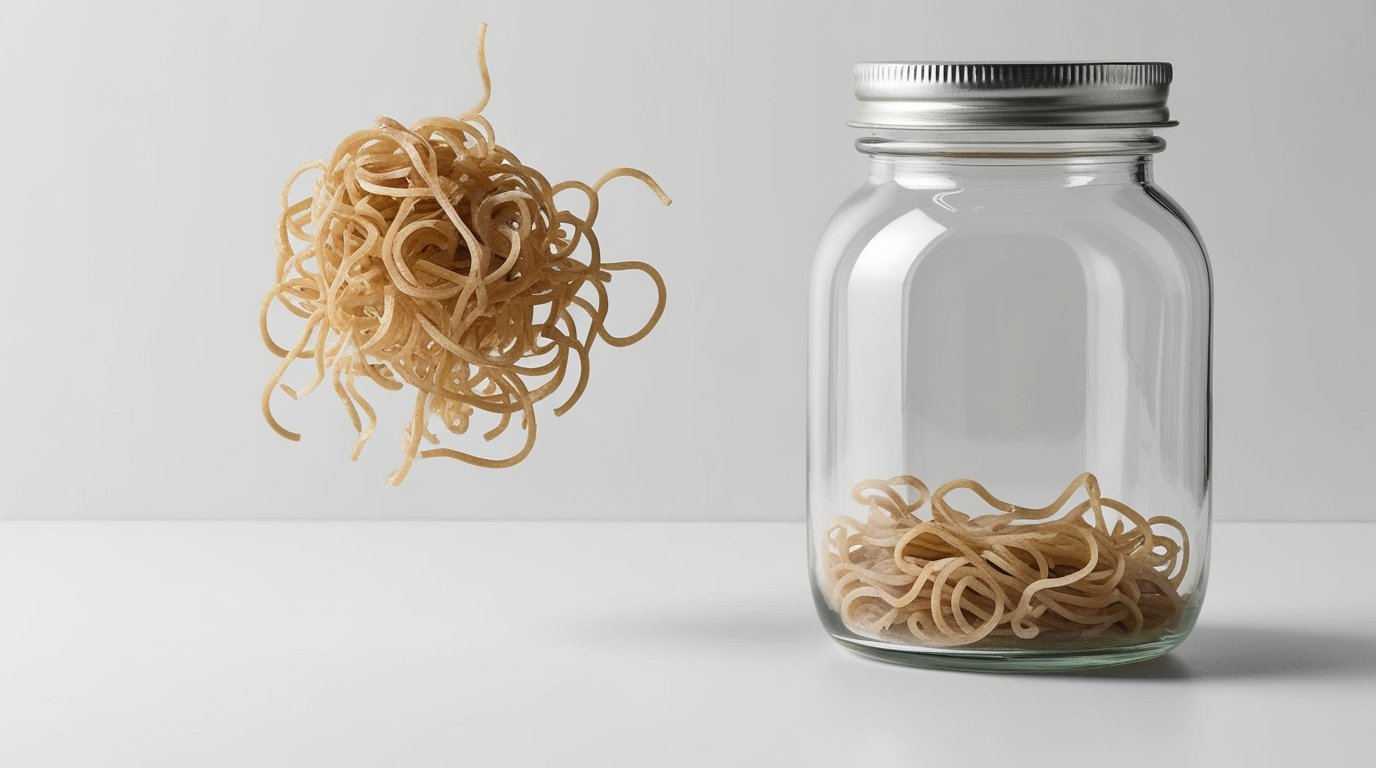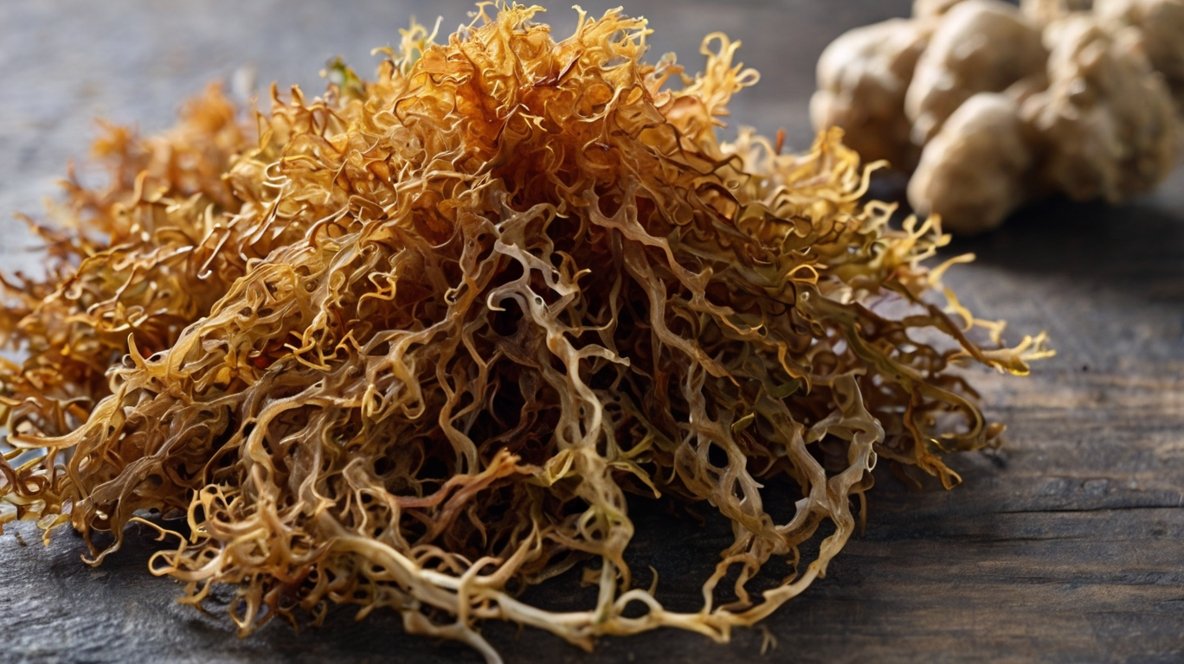Overview
Vitamins like biotin, A, C, D, E, and B complex are essential for hair growth and scalp health. Deficiencies can lead to hair thinning. The hair growth cycle includes growth, transition, resting, and shedding stages, which can be disrupted by stress, poor diet, and hormonal changes. Nutrients like vitamin C, D, biotin, iron, zinc, and selenium nourish hair follicles and promote growth. A balanced diet with whole foods and supplements like Viviscal Pro can help support hair health. Always consult a healthcare professional before taking supplements.
Importance of Vitamins for Hair Growth, Thickness and Scalp Health
Essential vitamins for hair growth are biotin, vitamins A, C, D, vitamin D3 vitamin K2 , vitamin E, B complex, iron, zinc, selenium, and magnesium. They are necessary for thick, strong and healthy hair. Without these nutrients in the diet properly, a person loses more hair.
You could use a lot of expensive hair care products to get shiny hair, but if you don't pay attention to what you consume and how you nourish your hair from the inside, they will not work.
Losing hair could be due to genetics, skin disease, hormonal imbalance, some inner diseases, malnutrition, drugs, stress, depression etc.
Dietary deficiencies causing loss of hair and thinning of hair can be managed with supplements of hair growth vitamins. They can reduce hair loss and promote hair growth by filling the nutritional gap.
Let us see how the vitamins for hair growth can influence the strength, thickness, and shine of hair.
What is the Hair Growth Cycle?
How do you know if your hair loss is normal or not? Losing 50-100 hairs a day is not a cause for concern. It's a natural part of the hair growth cycle, where the old hair comes out and new hair grows in its place. The hair growth cycle has 4 stages:
| Name | Phase | What Happens? |
| Anagen | Growth | Hair follicles divide with great speed. Healthy hair can grow by half an inch in length monthly. |
| Catagen | Transition | Hair follicles shrink and there will be less hair growth. Lasts for a few weeks. |
| Telogen | Resting | Hair is inactive. Lasts for a few months. |
| Exogen | Shedding | Old hair is shed and new ones grow out of the same follicle. |
What Causes Hair Loss?
Some people are genetically predisposed to lose more hair. Excessive hair loss can happen due to:
Why are Vitamins Important for Hair Growth?
We have 100,000 hair follicles on our scalp. They may be in various growth stages, but most of them, about 90% are in the anagen growth phase. At this stage, your hair needs nutrients.
Eating a diet rich in proteins, vitamins, and minerals may aid hair follicles to maintain anagen and telogen balance, so that hair doesn't shed quickly. These vitamins and minerals are needed in low quantities, but they are important for hair follicle renewal processes.
Vitamins for hair growth reduce the regression of the follicles. They stimulate growth factors in dermal papilla cells. Your hair grows in length when follicles are activated. Research shows their direct benefits for hair growth.
A poor diet results in nutritional deficiency. This can affect the structure, texture, and viability of hair. Hair treatments and spas may be useful to resolve damage on the outside. The vitamins for hair growth and thickness make your hair become stronger from the inside.
Which Vitamins Are Good For Hair Growth And Thickness?
You need these vitamins for hair growth:
| Nutrients | Role in Hair Health | What Research Suggests? |
| Vitamin A | Protects the integrity of epithelial cells | Must eat a diet rich in vitamin A for strong immunity, growth, and vision. Excess intake can cause hair loss. |
| Folate | Needs vitamin B12 for folate activation. Important for cell division and maintenance of hair follicles. | Deficiency of folate leads to undesirable changes in hair, skin, and nails. |
| Biotin (Vitamin B7) | Deficiency is rare, but it causes skin rashes, hair loss, and fragile nails. | 38% of women with hair loss had low levels of biotin. Patients with biotin deficiency reported hair growth after taking supplements. |
| Vitamin C | Reduces oxidative stress and thus, impacts hair loss. Aids in collagen production to improve hair strength and elasticity. | Must get vitamin C from diet. Iron-deficient individuals need vitamin C support to reduce hair loss. |
| Vitamin E | Powerful antioxidant. Protects hair from damage and improves scalp blood circulation. | Prevents dry and brittle hair. Topical application can be hydrating. |
| Vitamin D | Activates hair follicles and reduces scalp inflammation. | People with baldness (eg, alopecia) have vitamin D deficiency. Get vitamin D from diet and sun exposure. Vitamin D deficiency is more common. |
| Other B‑Complex | Vital for cell metabolism that impacts hair growth. | Includes B1, B2, B3, B5, B6, B12, folate, and biotin. Deficiency of B2, biotin, folate, and B12 is associated with hair loss. |
Apart from vitamins for hair growth, some of the minerals necessary for hair health are:
| Nutrients | Role in Hair Health | What Research Suggests? |
| Iron | Needed for oxygen delivery and enzyme activity. Vital for rapidly growing cells like hair follicles. | Iron deficiency in women triggers hair loss. Low ferritin in the body stops hair growth to redirect iron to maintain serum circulation levels. Even with normal iron levels in serum tests, you may have an iron deficiency, responsible for hair loss. |
| Zinc | Prevents hair follicles from shrinking and reduces hair loss. | Deficiency is directly related to hair loss. During pregnancy, zinc deficiency may be more pronounced. |
| Selenium | Activates antioxidant enzymes. Protects hair follicles from oxidative stress | Deficiency may be seen as hair thinning, breakage, or loss. Excess may cause hair loss. |
How Vitamin Deficiencies Affect Hair Growth?
The type of hair loss most prevalent in both men and women is androgenetic alopecia. This is male and female pattern hair loss. Men may see their hairline recede and notice baldness, more so on the crown. Thinning of hair, especially at the part line, may be notable in women. Approximately 73% of hair loss can be attributed to androgenetic alopecia with no damage to the hair follicles. In such cases, hair regrowth can occur with proper care and nutrition.
Two other major types of hair loss are:
- Telogen effluvium (TE): Shedding of hair occurs in a sudden manner. This usually occurs in 1 to 6 months after a major stressor (which could be ill health or psychological stress, dieting, surgery, pregnancy, etc.)
- Alopecia areata (AA): An autoimmune condition that results in patches of hair loss for no apparent reason.
Many studies have shown that micronutrient deficiencies may enhance hair loss. Some hair problems that you may be experiencing include:
- Hair loss becomes noticeable.
- Hair thinning is seen on the crown or near the part line.
- Hair becomes brittle and breaks off very easily.
- Hair is damaged.
These signs may indicate that an underlying nutritional deficiency may be the reason for hair loss.
More than half of the global population is deficient in micronutrients. It’s more common in:
- People who consume a poor diet
- Those who deal with chronic stress (both psychological and physical)
- Individuals with chronic illness
- Pregnant women
- Elderly individuals
- People who have malabsorption issues
Some of the key deficiencies that can cause hair loss are:
- Biotin: Even though biotin deficiency is rare, without enough biotin, your hair may become fragile and thin.
- Iron: Low iron levels result in shedding and thinning of hair. This may be noticeable even before iron deficiency becomes anemia.
- Vitamin D: Without vitamin D, hair follicles stay in resting levels for too long and resulting in shedding without regrowth.
Your doctor may conduct blood tests to identify some of these deficiencies and they may make recommendations such as dietary changes and supplementary vitamins for hair growth to prevent further hair loss and boost hair growth.
What Are the Food Sources Of Key Vitamins For Hair Growth?
Natural and whole foods are the optimum source of essential vitamins for hair growth. Your diet should comprise:
- Eggs
- Organ meat
- Oysters
- Fatty fish
- Nuts and seeds
- Legumes
- Mushrooms
- Avacados
- Carrots, pumpkins, broccoli, etc
- Leafy greens
- Fortified cereals
Vitamin C for Hair Growth: What You Need to Know?
Most people think of vitamin C as the go-to for fighting colds. But it plays a big role in hair health too. Without enough of it, your body struggles to absorb iron and that can lead to iron deficiency and even hair loss.
Vitamin C prevents oxidative stress and helps restore hair. It enhances collagen production on the scalp, improves its health, promotes hair health and also supports hair growth. It also strengthens hair strands.
Unknown benefits of vitamin C for hair health
Many people know that vitamin C also add a shiny look to your hair, adding more gloss and hydration and also protecting your hair from styling stress.
Vitamin C can be used as a shampoo, conditioner, hair serum, masks, vitamin C-rich food and supplements. Vitamin C masks can give good results even when used once or twice a week. Every product has a way in which it is used, like some are used before hair washing,g while some are left overnight,t so make sure to connect with an expert and also read the product label before choosing vitamin C products for hair health.
As soon as you start noticing hair thinning or breakage or hair loss, it's the perfect time to add vitamin C to your hair care routine. Vitamin C not only adds moisture but also provides nutrients that help hair stay healthy. Those who frequently style their hair and have over-coloured, damaged, and breakable hair can use vitamin C.
Tips to get results from vitamin C:
- It takes 2-3 months to see the results.
- Do not use too many hair care products at the same time. Stick to a few recommended by experts.
- Choose products that have vitamin C as the main ingredient.
- If you are planning to buy vitamin C supplements to cover your nutritional needs, there are many options available.
- You can choose ingredients like vitamin E, panthenol and betaine that complement vitamin C effects.
- For colour-treated hair, do not use vitamin C in high concentrations. More specifically, try options that are specifically meant for colored hair.
- Those who have a sensitive scalp should avoid applying vitamin C directly on the scalp. The best way is to use from the middle of the scalp down to the hair ends.
What Are The Best Hair Growth Vitamins For Men And Women?
Genetic and hormonal factors impact hair loss in both males and females. Moreover, nutritional needs are not the same for men and women and they vary based on the age and life stage.
Women have major hormonal changes during pregnancy, postpartum and menopause. Among pregnant, lactating, or menstruating women, iron deficiency is common.
The postpartum hair loss vitamins include B-complex, vitamins D, C, and E, zinc, and Omega-3s. Proper nutritional support may help with new hair growth in 3 to 6 months, after shedding gradually slows down.
Genetics is often the most common factor for baldness in males. Hair growth vitamins may also be useful for men to reduce hair loss.
Are Prenatal Vitamins Good For Hair Growth?
Prenatal vitamins are a supportive formulation for pregnant women. They contain all the essential vitamins and minerals to support the growth of the fetus. For the general health and wellness of the mother, they are vital.
But prenatal vitamins are not designed to support hair growth. No research evidence suggests the benefits of taking prenatal vitamins for hair growth.
Does Collagen Help Hair Growth
Collagen is found in skin, hair, and nails. It has amino acids like glycine and proline. Keratin production and follicle structure need these amino acids.
In a randomized, double-blind human study published in the Dermatology Research and Practice journal, 12 weeks of collagen supplement resulted in a 27.6%visual boost in hair count. Also, there was a 31.9% increase in clinical grading for the appearance of healthy hair. Another study showed that collagen, along with vitamins and minerals, may improve hair quality.
Supplements and Safe Use
A well-balanced diet for healthy hair and body is what is needed. But in case you already have an established deficiency (according to your physician), or are on a limited vitamins for hair growth may prove helpful. Such special supplements can help overcome a deficiency in vegetarians, vegans, or those with absorption issues, etc.
Before taking supplements, consult your doctor first for a professional assessment. Excessive dosage of vitamin A, E, and selenium can increase hair loss and thinning.
Always choose best-quality, GMP-certified supplements. Ensure ingredients used are in standardized amounts. Check if the brand assures ingredient bioavailability and stability by performing thorough testing. Make sure that the hair growth supplements you use are professionally recommended.
According To Nutritionists, What's The Best Hair Growth Supplement That Actually Works?
Hair loss related to nutritional deficiency that stems from a poor diet, increased nutritional needs, illness, or biological stress can be addressed with the use of targeted supplements containing vitamins for hair growth. A balanced diet and a healthy lifestyle is important for hair growth. Healthy men and women who want thicker and natural hair with less shedding can choose evidence-based hair supplements.
One of the top choices of nutritionists for hair growth vitamins for women and men is Viviscal Pro Hair Growth Supplement. It's one of the most clinically studied and reliable supplements for hair thinning for both men and women. It contains AminoMar Marine complex for follicle health and hair growth. Viviscal has created this premium supplement after 25 years of research.
Based on several randomized, double-blind, placebo-controlled trials published in the Dermatology Research and Practice journal, Viviscal has been shown to decrease hair shedding by 39%, increase thicker hair by 32% with just 3 months of usage. People who have used Viviscal in these studies reported noticeable and self-perceived improvements in hair volume, strength, and scalp coverage.
How To Promote Hair Growth - Final Tips
There is no shortcut to healthy hair. Small, but consistent efforts can help you grow longer, thicker, and fuller hair:
- Eat well: Restrictive diets don't provide enough nutrients for hair growth. Eat a balanced diet containing whole foods, proteins, vitamins, and minerals. Take vitamins for hair growth after consulting with your doctor to fill the nutrition gaps.
- Do Scalp massage: Massaging a scalp daily for at least 4 minutes promotes hair health. It also helps you relax and get stress relief. You may use essential oils such as rosemary oil, lavender oil, pumpkin seed oil, etc, for your hair massage.
- Avoid heat: Curling irons, hair dryers, straighteners, etc, use high heat and cause hair breakage. To style your hair, opt for heatless curls and air-dry your hair. If you must use heated styling tools, use a heat protectant product first. This may reduce hair damage.
- Be cautious of chemicals: Hair dyes can cause damage and it's better to use them minimally. Read the labels of your shampoos and conditioners and make sure that they don't have harsh chemicals.
- Trim your hair: Every few months, trim your hair to remove split ends. They won't make your hair grow faster, but they can help with hair health.
- Reduce stress: Stress causes your hair to go into the resting phase sooner, making it shed. You can get stress relief through exercise and yoga practices.
- Sleep well: Sleeping for 7-9 hours may regulate melatonin, which impacts hair growth. While sleeping, you may use silk or satin pillowcases to prevent tangling or tugging of hair.
FAQs
Can guys take prenatal vitamins for hair growth?
No, the prenatal vitamins are to meet the nutritional needs of pregnant women. It has iron and folic acid in high amounts. Iron supplements can be harmful to men if they don't have a proven deficiency. So, men should choose multivitamins made for them.
What is in prenatal vitamins for hair growth?
Prenatal vitamins contain folic acid, iron, vitamins, zinc, etc., depending on the formulation. They fulfill the nutritional requirements of pregnant women and the growing fetus. They are not meant for hair growth.
What vitamins stop facial hair growth?
There are no particular formulations available to stop facial hair growth. The hair growth pattern varies according to each individual.
Do hair growth vitamins work?
Hair growth vitamins can help in cases of hair loss and thinning hair due to a deficiency from a lack of nutrition. Proven, premium quality supplements like Viviscal Pro may promote hair growth. So, choose high-quality and evidence-backed supplements after talking to an expert.
How to promote hair growth in women?
The basics - balanced diet, stress control, and stress are the foundation of healthy hair. Avoid heat styling and air-dry your hair. Use shampoos and conditioners without harsh chemicals to avoid hair damage. Proven supplements may also help under a professional's recommendation.
How much biotin to take daily for hair growth?
Biotin deficiency is a rarity among people consuming a healthy and balanced diet. Some hair supplements do contain biotin, but only a doctor would be able to ascertain whether you have a biotin deficiency and suggest a suitable supplement.
Is vitamin C good for hair growth?
Yes, vitamin C is good for hair growth. It works by reducing oxidative stress, boosting collagen production, improving scalp health, and preventing hair loss and hair thinning. It also strengthens hair, supportingsupports hair follicles and helpinghelps the body absorb iron for healthy hair growth cycles. All these factors reduce hair fall and improve hair strength. When you have a healthy scalp, you can expect your hair to grow.
Conclusion
Poor nutrition is a major trigger for hair loss. A balanced and wholesome diet provides vitamins for hair growth. Those who have well-established deficiencies can take the appropriate hair growth vitamin supplements. It may support follicle health and reduce oxidative damage. Healthy individuals may also benefit from hair growth supplements to improve hair strength. It is important to consult a healthcare professional before starting a supplement. They can clarify what your body actually needs and suggest the proper dosage for you.
Author Bio:
Dr Aditi is a certified Advanced Dietary Supplements Advisor from Health Science Academy. With over eight years of clinical experience, she is passionate about guiding patients in healthy lifestyles, nutrition and supplements.
She is well-updated with the latest healthcare knowledge and is also a part of National News Writing, where she actively contributes to highly researched articles from all medical branches. Her health and wellness articles, which may guide you towards a healthy lifestyle, are also available on Nutriessential.







